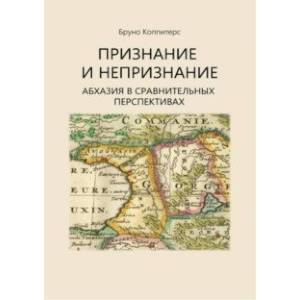Recognition and non-recognition. Abkhazia in comparative perspective
Please sign in so that we can notify you about a reply
The Constitution of the USSR proclaimed only the union republics as sovereign. When in 1991 the Soviet Union ceased to exist, the international community recognized these union republics as independent states. On the contrary, it refused to recognize the statehood of all other political entities claiming independence in the post-Soviet space, since they were not declared sovereign by the Soviet constitution. However, some of these entities managed to survive despite such a policy of non-recognition. The book examines why, how, and with what degree of success the international community applied its policy of recognition and non-recognition in the post-Soviet space. To a significant extent, but not exclusively, the study focuses on the Georgian-Abkhaz conflict. For example, it discusses the United Nations Observer Mission in Georgia (UNOMIG), a peacekeeping mission deployed in Abkhazia by the UN Security Council from 1993 to 2009. It further explores how states interact with entities they do not officially recognize as states. Special attention is given to the EU's policy of "non-recognition and engagement" towards Abkhazia. The book also investigates to what extent separatist conflicts in Europe involving disputed states have been forgotten. The last chapter analyzes the consequences of non-recognition of Abkhazia for the internationalization of the Abkhaz State University. The chapters of this book were originally published in English in international journals and collections.
Author:
Author:Bruno Koppiters
Cover:
Cover:softcover
Category:
- Category:Politics & Social Science
Dimensions:
Dimensions:20.5x14x2 cm
ISBN:
ISBN:978-5-4499-3260-0
No reviews found
